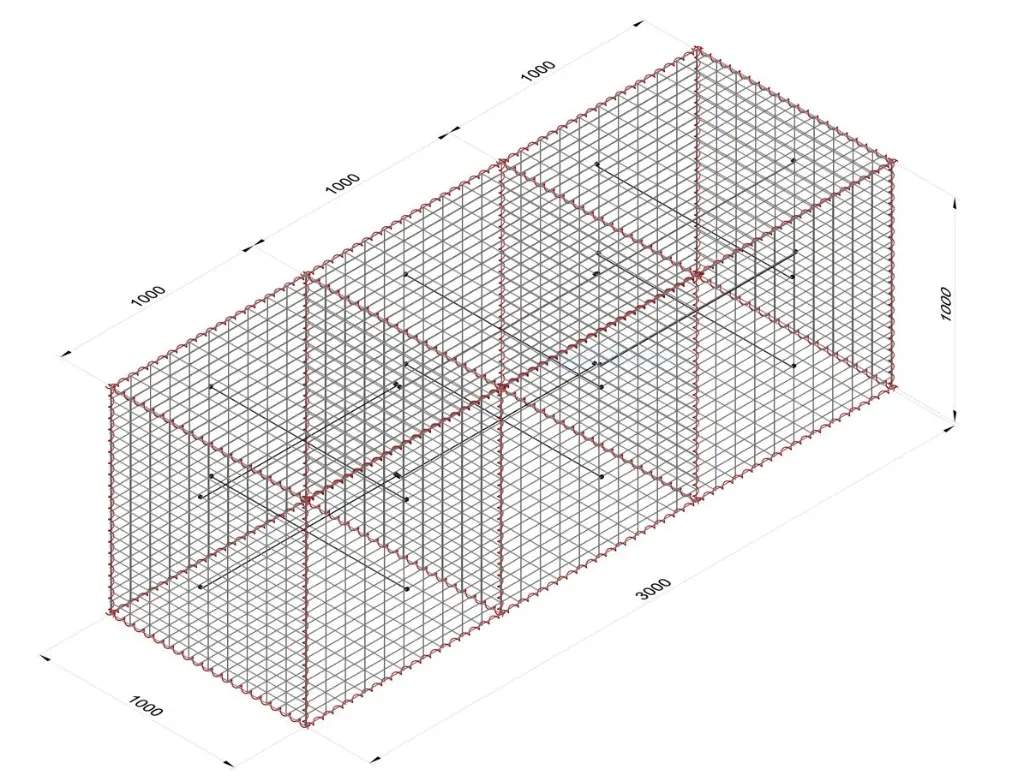What Are Gabion Walls?
Gabion walls are wire mesh baskets filled with stones, rock or recycled materials. They are adaptable, environmentally friendly and blend naturally into the landscape.
Best used for: retaining walls, erosion control systems, landscaping concepts, and noise walls.

What Are Concrete Walls?
Concrete walls are a solid block of building material made up of cement, sand, gravel, and steel reinforcement. They are rigid, uniform and are used extensively in urban and industrial construction.
Ideal for: permanent barriers, foundations, and heavy load-bearing applications.
Gabion Walls vs Concrete Walls – Comparison
| Feature | Gabion Walls | Concrete Walls |
|---|---|---|
| Durability | Adapt to soil shifts and resist cracks | Strong but crack under pressure shifts |
| Climate Resistance | Withstand heat, floods, and desert winds | Heat causes expansion, prone to weathering |
| Cost | Lower installation + minimal maintenance | Higher initial + repair costs |
| Drainage | Natural drainage, prevents waterlogging | Needs artificial drainage system |
| Sustainability | Eco-friendly, uses natural stone | High carbon footprint |
| Design & Aesthetics | Rugged, modern, blends with nature | Plain unless finished/cladded |
| Flexibility | Modular, easy to expand or repair | Rigid, failure can be sudden |
| Best For | Retaining walls, landscaping, erosion control, noise barriers | Foundations, industrial structures |
Where Each Wall is Best in Saudi Arabia
Gabion Walls:
- Highway embankments
- Riverbank and desert erosion control
- Landscape architecture - villa and garden
- Noise and security barriers
Concrete Walls:
- Building foundations
- Urban infrastructure in which uniform strength is required
- Industrial and heavy load buildings
Why Hitech Gabion is the Smarter Choice
In Saudi Arabia, Hitech Gabion provides high-quality gabion products with galvanized and Galfan coatings, which ensure a long life under extreme climatic conditions. Compared with conventional concrete, our gabion solutions are:
- High-temperature and erosion resistant
- Helpful to the environment with the use of natural stones
- Energy efficient with reduced maintenance
- Can be personalized for landscaping and infrastructure.
Final Thoughts:
Gabion vs Concrete - Who Comes Out On Top?
While concrete walls have a place in heavy-duty construction, gabion walls make more sense in light of Saudi Arabia's climate, topography, and sustainability ambitions. They offer a combination of strength, beauty, and environmental benefits that are perfectly suited to modern construction and landscaping requirements.
For projects that demand durability, versatility, and aesthetic charm, Hitech Gabion emerges as Saudi Arabia's premier gabion solution provider.
FAQs
Gabion walls are soft cages filled with stones and concrete walls are hard solid structures made of cement, sand and gravel.
Gabions are durable as they do not crack due to extreme heat, soil movement and floods.
Yes. Gabion walls are cheaper to install and maintain than concrete, which tends to need repairs over time.
No. Concrete walls require artificial drainage systems to allow water to pass through, while Gabions are naturally permeable.
Gabions are more sustainable, they use natural stones and recycled materials, and concrete has a high carbon footprint.
They are suitable for retaining walls, erosion control, landscaping, highways, riverbanks and noise barriers.
Concrete walls are more suitable for foundations, industrial structures, and heavy load-bearing structures.
Gabion walls are in harmony with the environment, whereas concrete requires cladding or finishing to look good.
Yes. With proper design, gabion walls can be used for slopes, embankments and large retaining systems.
Hitech Gabion provides ISO-certified gabion systems with Galfan and galvanized coating for durability, sustainability, and customized designs for the Saudi environment.